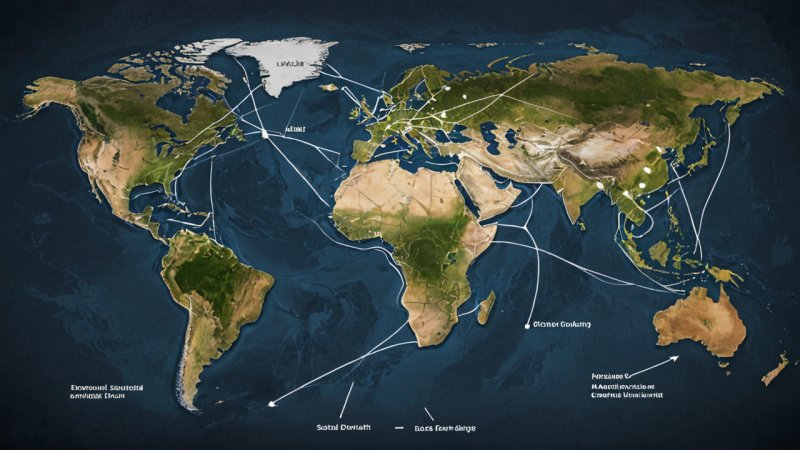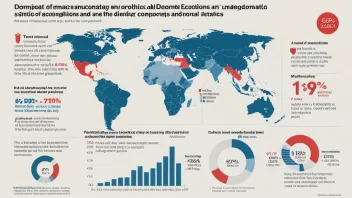The intersection of economics and social change is a critical area of study in the field of social sciences. Understanding how economic factors influence social development and vice versa can illuminate pathways for progress and improvement in societies around the world. This article explores the interconnectedness of economics and global development, emphasizing the importance of holistic approaches to policy-making.
At its core, global development is about improving the quality of life for individuals and communities. Economic growth is often viewed as a key driver of development, providing the resources necessary for healthcare, education, and social services. However, it is essential to recognize that economic growth alone does not guarantee social progress. Countries experiencing rapid economic expansion can still face significant social challenges, such as income inequality, lack of access to education, and inadequate healthcare systems.
One of the most pressing issues in global development is income inequality. Research indicates that economic growth can sometimes exacerbate disparities between different social groups. For instance, in many emerging economies, the wealth generated by growth tends to concentrate among a small elite, leaving marginalized communities behind. To address this, policymakers must design inclusive economic strategies that ensure equitable distribution of resources and opportunities. This includes investing in social safety nets, education, and healthcare, which can empower disadvantaged populations.
Moreover, the role of women in economic development cannot be overstated. Gender equality is not only a moral imperative but also an economic one. Studies have shown that increasing women's participation in the labor force can significantly boost economic growth. Countries that prioritize gender equality through policies such as paid parental leave, affordable childcare, and equal pay tend to experience more robust and sustainable development. This highlights the need for economic policies that consider social dimensions, fostering environments where all individuals can thrive.
In addition, the impact of globalization on local economies and cultures must be addressed. While globalization can stimulate economic growth, it can also lead to cultural homogenization and the erosion of local traditions. Policymakers must strike a balance between embracing global markets and preserving cultural identities. Supporting local businesses and promoting fair trade practices can ensure that globalization benefits communities rather than undermining their social fabric.
Lastly, as the world faces pressing challenges such as climate change, the integration of environmental considerations into economic planning is vital. Sustainable development requires economic policies that prioritize environmental health alongside social equity. By investing in green technologies and promoting sustainable practices, countries can create resilient economies that protect both people and the planet.
In conclusion, the relationship between economics and global development is complex and multifaceted. To foster meaningful social change, policymakers must adopt holistic approaches that consider both economic growth and social equity. By addressing income inequality, promoting gender equality, balancing globalization with cultural preservation, and prioritizing sustainability, nations can pave the way for a more inclusive and prosperous future for all.
Global Development: Economics and Social Change Interconnected
Exploring the interconnectedness of economics and social change in global development.






